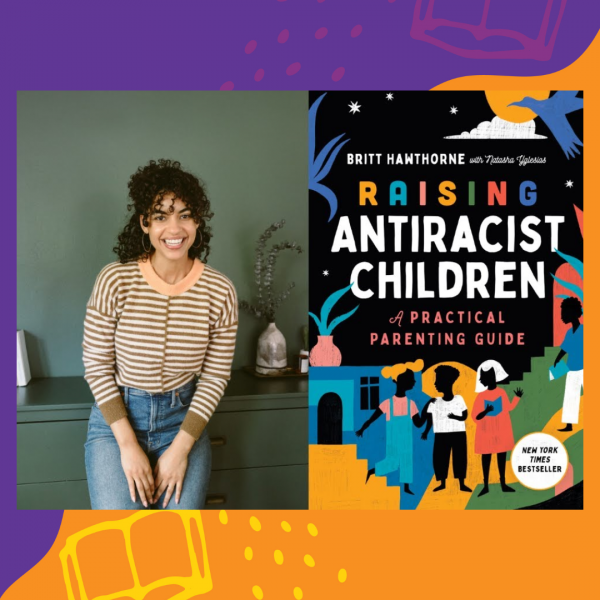Are you committed to building an antiracist family environment for your children? Raising antiracist children is a noble goal for any parent, caregiver, or educator, but it can be hard to know where to start. Let Britt Hawthorne—a nationally recognized teacher and advocate—be your guide. Raising Antiracist Children acts as an interactive guide for strategically incorporating the tools of inclusivity into everyday life and parenting. In her book, Hawthorne breaks down antiracist parenting into four comprehensive sections and in this webinar you will learn about:
Healthy bodies—Establishing a safe and body-positive home environment to combat stereotypes and create boundaries.
Radical minds—Encouraging children to be agents of change, accompanied by scripts for teaching advocacy, giving and taking productive feedback, and becoming a co-conspirator for change.
Conscious shopping—Raising awareness of how local shopping can empower or hinder a community’s ability to thrive, and teaching readers of all ages how to create shopping habits that support their values.
Thriving communities—Acknowledging the personal power we have to shape our schools, towns, and worlds, accompanied by exercises for instigating change.
Raising Antiracist Children is a must-have, practical guide essential for parents and caregivers everywhere.
About the Author: Britt Hawthorne (they/she) is the author of the highly-anticipated, New York Times Bestseller, Raising Antiracist Children: A Practical Parenting Guide (Simon Element, 2022). The book is an interactive guide for strategically incorporating the tools of inclusivity into everyday life and parenting and it received a starred review from Kirkus.
Britt is also an antiracist educator, teacher, speaker, visionary, and advocate committed to raising a generation of antiracist children by centering families of the global majority and fostering equitable learning environments for students and children of all ages and backgrounds. Britt’s work moves the idea of equity in education from a goal to reality. She partners with action-orientated educators to create classroom environments that are inclusive and equitable for all learners.








